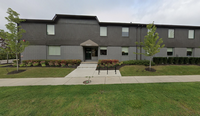Another casualty in the coronavirus pandemic: People who need drug rehab


Georgea Kovanis, Detroit Free Press
Apr 23, 2020 at 11:52 AM
It used to take Lisa Cottaneo-Boska less than 24 hours to get the drug addicts she helps into a residential rehab program.
But now, with the coronavirus pandemic raging and the environment ripe for relapse, wait times for inpatient rehab spots have grown to days and, in some cases, weeks — delays that can be deadly for addicts, especially those who use heroin. "If we can't get them in on the same day, we already know they're going to go out and use again," Cottaneo-Boska said.
And with so much heroin laced with ultra powerful fentanyl — users often don't know what they're buying — the odds of overdosing are high. "It’s just like going out there and playing Russian roulette," Cottaneo-Boska said.
As a result, experts predict an increase in the state's already grim number of opioid overdose deaths. In 2018, five people a day died from opioid overdoses.
So why the wait for treatment?
The coronavirus.
It's created a shortage of available beds in residential treatment centers.
Patients in rehab often live in close quarters, usually two or three to a room. To reduce the chances of infection and to adhere to social distancing rules, facilities have had to switch around accommodations, spacing out clients in communal sleeping dormitories and reducing the number of roommates assigned to a single room.
Oakdale Recovery Center in Canton used to be able to accommodate a total of 45 patients. It now limits its patient population to 32, said Carol Zuniga, the center's executive director.
Ascension Eastwood Recovery Center in Southfield, a drug and alcohol detox and rehab facility for men, usually has space for 40 inpatients, according to Gwendolyn Bammel, clinical supervisor. Making its rooms single occupancy means it now has space for only 18 patients.
Fewer rooms mean longer wait times for treatment.
And that's a problem because "there's a very small window in which people both recognize (their substance use) is a problem and are willing to do something about it," said Bammel. "We are going to miss that window for a lot of people.”
People will return to their addiction. In the case of opioid addiction, people will keep using for two reasons: to keep their high going and also to stave off withdrawal symptoms.
"It's just been very challenging to try to keep them coming back to us and asking for help when we're having a hard time finding places to put them," said Cottaneo-Boska, who works for Hope not Handcuffs in Macomb County, a program that tries to keep addicts out of jail by providing treatment. "We're trying to give them hope, but by the same token, our world is shutting down."
While it's true telehealth may be an option for some people in need of substance abuse treatment it has its drawbacks.
Many of the patients Dr. Sheba Sethi — an addiction medicine doctor at Packard Health in Ann Arbor — works with don't have their own phones. "I did a call ... with a patient earlier this week and he didn't have a phone. He was borrowing someone else's phone. He missed my call three or four times," she said. "I had another patient earlier this week who had a minute phone. She kept saying, 'Dr. Sethi, are we done? Dr. Sethi, are we done?' "
Other, usually older, patients aren't comfortable with virtual appointments.
Technology aside, outpatient treatment simply doesn't work for some people who need a more structured environment for recovery. "For your long term alcoholic who typically has to drink in the morning to stop the shakes, they will not be successful in (outpatient)," said Bammel. "They need a residential level of care." The same, she said, is true for opioid addicts.
All this is happening at a time when the danger of relapse is heightened.
Everyone is scared by this unprecedented pandemic, terrified about losing friends and family members and stressed by the economic downturn and loss of jobs. But for people who are recovering from substance abuse issues, the environment creates a perfect storm for relapse.
"For people in recovery, it's the fear and anxiety and stress that most people are feeling right now, coupled with that risk for relapse," said Monique Stanton, president and chief executive officer of CARE of Southeastern Michigan, which provides outpatient substance abuse treatment. "People who are typically in recovery have been impacted by some sort or trauma (which) magnifies, I think, the stress that everybody is already feeling."
The end result, said Bammel, is this: "We have a lot of people who have been clean and are relapsing and just trying to get away from how scary it is to deal with all of this."
People who have been clean for some time and return to drugs are more likely to overdose; their bodies are no longer accustomed to the drugs. They have lost their tolerance.
Not long ago, Sethi had a patient who died that way. "I think we're going to hear more stories like that that are just devastating," she said.
As a result, Bammel said, "I think we will see more overdose deaths."
 Pathways Drug Rehabilitation Luxury Addiction Treatment & Detox Center
Pathways Drug Rehabilitation Luxury Addiction Treatment & Detox Center


